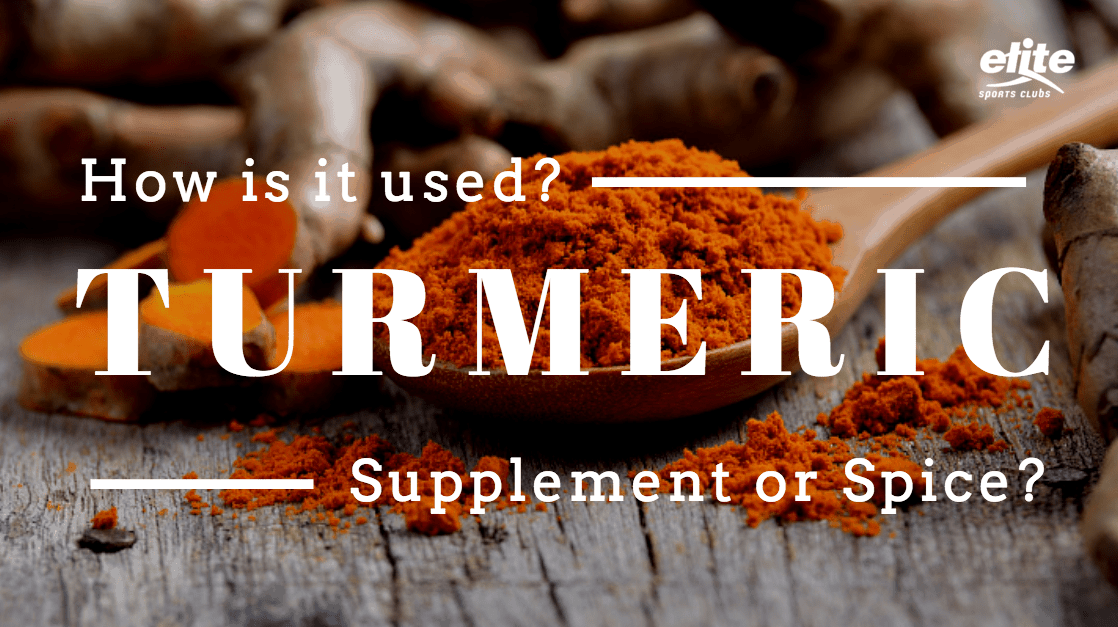
We have all probably heard of Turmeric but may not be using it consistently. Turmeric is an herbal perennial plant of the ginger family. It is native to southwest India requiring high temperatures and rain to survive. Plants are gathered annually for their rhizomes, and then boiled and dried, and finally ground into a bright yellow powder commonly used as a spice in Indian and Pakistani curries. One ingredient is curcumin, which has a distinct earthy slightly bitter, peppery flavor and a mustardy smell. It has a wide variety of uses, partly as a herbal supplement and partly, as a great spicy ingredient in many Indian dishes.
Turmeric has been used in Asia for thousands of years and is a major part of Siddha medicine. Early writings suggest that it was used as a dye for clothing but later tested as a clearly helpful medicine. Today it is mostly used in savory dishes but is used in some sweet dishes, such as specialty cakes. In India, turmeric can be be used to prepare a sweeter mixture by being layered with rice and coconut on the turmeric leaves, then cooked slowly in a copper steamer.
Recipes outside of South Asia, turmeric is used as an agent to impart a rich, custard-like yellow color. It is used in canned beverages, baked products, dairy products, ice cream, biscuits, popcorn, cereals, and sauces. It is a significant ingredient in most commercial curry powders, which is the only way that I have come to enjoy it, but liked it very much. The information available for uses for turmeric are wide and varied. Turmeric can best be thought about as a wonderful ingredient in meat, vegetable and rice dishes.
In India, turmeric is a widely regarded food ingredient for most households. It has been widely researched that many countries, such as India, traditionally use spices and natural flavor because of their historic use as a digestive aid and benefits for liver ailments. Many others will use this herbal preparation as a topical skin cream, based on its antimicrobial property. If these uses are true, many individuals feel that turmeric’s use helps them tremendously with normal daily digestive problems. And, basic research shows that oils and extracts from turmeric may have antifungal and antibacterial properties.
I am very happy to have clients use this product if they so desire and in recommended doses as an herbal supplement. I one that I have is 500 mg turmeric curcumin. The suggested amount is 1-tablet per day. I have not currently used this product myself but feel it may have some benefits especially in the case of digestive abilities.
One note about herbal supplements: trying a supplement, such as turmeric, does require mentioning this to your physician in the case of any counter-indications for your current medications. But, because turmeric has a fabulous taste that many people use on a daily basis, it is unlikely that it will cause any problems.
Natural products such as herbal supplements are, today, widely used by many of us to improve normal medical benefits. If any concerns, contact the company that makes the product you want to use with any questions and talk with their biochemist.
Do try a curry dish soon and taste the turmeric. I know I am going to pull mine out of the cabinet and try it again as well.
Written by Rita Larsen, RDN, CD; Elite Sports Clubs Nutrition Educator & Diet Counselor
Rita is certified in Positive Psychology, University of Penn; has a BS in Dietetics from Kansas State University; and an Internship and Masters at the Indiana University Medical Center.
Schedule a Nutrition Consultation